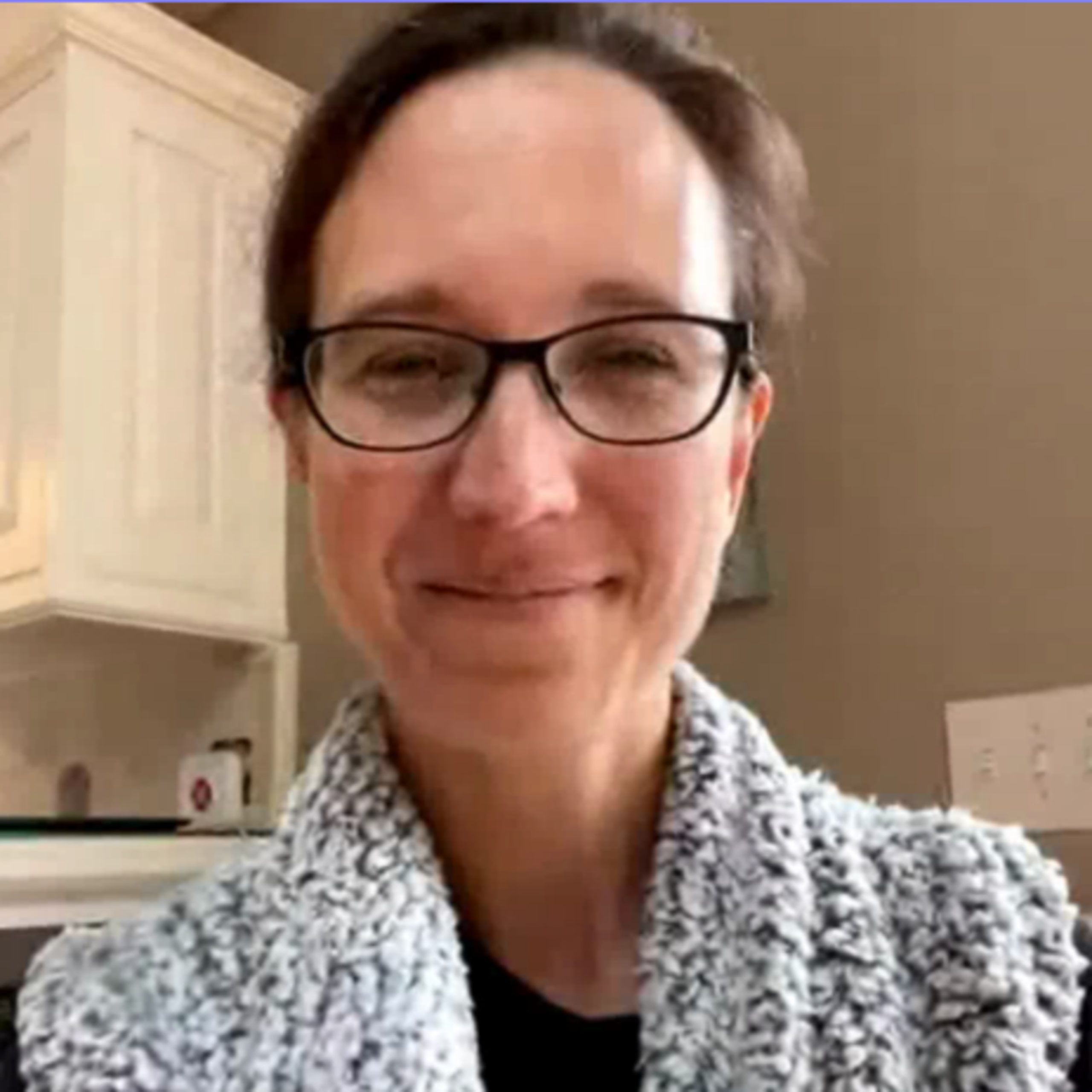
We get a patient’s perspective on healthcare from Emily Batterton on this episode of the Perspectives on Healthcare Podcast. This is interview 7 from the patient’s perspective interview marathon. Emily is from Connecticut and shares some of her experiences in the medical system including 10 weeks of bed rest during her pregnancy with twins.
Just to keep everyone updated on where things stand with the Guinness World Record Attempt. I am still collecting evidence for the marathon. I will let everyone know once the information has been finally submitted. We are getting close!
Here is the transcript of Emily Batterton giving a patient’s perspective on healthcare:
Introduction to Emily Batterton
Rob Oliver: Hello. What’s your name?
Emily Batterton: Hi. I’m Emily.
Rob Oliver: Wonderful. Emily, welcome. And where are you from?
Emily Batterton: I’m from Connecticut.
Rob Oliver: Wonderful. So, Emily, tell me it a little bit about yourself and your experiences in healthcare. Please.
Emily Batterton: My experiences have been pretty basic. Nothing too exciting, apart from a couple of minor surgeries. And then I did have ten weeks in the hospital with a kind of a complicated twin pregnancy. So I had ten weeks of daily face to face interaction with doctors, nurses, janitors, the whole nine yards. So that kind of definitely impacted my history on healthcare.
Rob Oliver: Yeah. Is that like ten weeks of bed rest and the whole thing? Talk to me about that.
Emily Batterton: Yeah. I was 24 weeks pregnant and got in for a normal what we thought was a normal ultrasound of our twins. And they said, you don’t know it, but you are in active labor. And if we don’t stop this right now, you’re going to have your babies now at 24 weeks. And they were able to stop it. But I was far enough along that they did not feel comfortable letting me leave the hospital. So I had come in for a normal older sound and then didn’t leave again for ten more weeks until my daughters were born and they were in the NICU. So I didn’t go home with them, but they were healthy at 34 weeks. So it was a miracle. The Lord was very good to us.
Rob Oliver: Sure. So talk to me. The impact that has on your family, I would imagine, is pretty amazing because it’s a 24 week regular ultrasound where we expect you to go in and then you’re going to come home and we’ll be good. So for ten weeks, your husband is home with taking care of the house and the family. How did that work out for him?
Emily Batterton: Well, thankfully, they were our first children, so we didn’t have any other children at home that would have complicated things if our other children had been born. It was also hard because we lived a little over an hour from the hospital, and it was also a little over an hour from the wrong direction from my husband’s work. So every day he would make a triangle from work to the hospital to home. When the hospital would let him, he would stay overnight with me. But they didn’t do that too often. And I would just say his parents really pitched in and did what they could because they lived nearby to him. And he ate a lot of Wendy’s hamburgers for ten weeks.
Rob Oliver: Okay. The hospital is taking care of your health and doing a great job with that. However, his health is deteriorating a little bit because he’s got a lot of fast food in there.
Emily Batterton: Yeah. But he would always bring me a frosty to help for the twins. He would bring me a frosty for the twins. So, yeah, we both probably gained more than was advised in those ten weeks.
Rob Oliver: You know, it is so funny to hear you say that because when my wife was pregnant with our kids, it wasn’t Frosty’s, it was Blizzards from Dairy Queen. And so every night at about seven or 730, I was getting in my van driving down the Dairy Queen, and at least I was only picking up one Blizzard. The first couple of times I got two. And I’m like, I can’t do this. There’s just too much going on here. And they knew my order at some point. And I’ll say this, my wife is highly upset with Dairy Queen because her go to was a Nestle crunch Blizzard. That was her go to. And they stopped making them. So just terribly disappointing. She still enjoys a Blizzard, but not as much as she used to.
Emily Batterton: Dairy Queen let down all the pregnant women out there.
Rob Oliver: Yes, exactly. Although from the pregnancy perspective, making the Nutella pickle lemon slice Blizzard may not be a good idea either.
Emily Batterton: That’s true. That would be a niche market. Yeah, I agree. Yeah.
Recognizing Healthcare Heroes
Rob Oliver: Cool. So have you met any healthcare heroes along your journey, people that were doing it right?
Emily Batterton: Yes. So for me, kind of openness and warmness upon first, face to face contact was always very important to me. So when those ten weeks in the hospital really the people who I was with the most were not the doctors, it was the nurses and also just even the janitorial staff when they came through to clean my room every day, like having the woman, I got to know her very well, having her and the nurses be with a smile on their face and treating me as if they were happy to see me, even though I’m sure they weren’t, especially it’s not a fun job to be fixing monitors in the hospital and stuff, but having those people be friendly and warm, even maybe when they didn’t feel like it, that was a huge thing for me.
Rob Oliver: Yeah. So interesting. And you’re saying that it’s the entirety of the staff. I’ve never thought of this before, but the janitor has to have a good bedside manner. Is that what you’re saying?
For me, that was a big blessing, given that that was my only socialization, really, other than phone calls. So. Yeah. So having her be just checking in and I got to know her story. So that was a big deal for me, was having everybody from the doctors down to just have a smile on their face. I worked as a medical receptionist for a couple of years as well. And that was one thing I tried to give to our patients was a smile when they came in because a lot of them were scared. It was sometimes a scary time.
Rob Oliver: Yeah. I think what you just mentioned there is so important because it’s remembering that when patients come in to the doctor’s office most of the time, it’s because something is in turmoil. In their life. There are people that come in for wellness visits, and that’s one thing. But someone’s coming in because they have a sore throat or because their child is sick and their life is turned upside down. And so giving them a little bit of empathy, giving them a little bit of understanding really creates an environment where they are feeling heard or at least acknowledged. Let me give you an analogy, okay. My kids, when I was working in downtown Pittsburgh, I said hello to everybody that I passed on the street. And I did it with purpose because being in a wheelchair, people are afraid to look. They don’t know how to react. And my thing is I’m going to make eye contact with you and I’m going to make you acknowledge that I exist, just even if it’s saying, like, hello. And I made a ton of acquaintances and a ton of friends that way. But it was that thing. I took it as my personal mission to be acknowledged and as being human. Okay. And I feel like what you’re talking about is when someone comes into comes into the office that they are acknowledged as being a human and that they are acknowledged as having value. How does that sit with you?
Emily Batterton: Absolutely. I like how you pointed out the eye contact part, because I think especially now when even doctors and nurses, receptionists, everybody has a computer screen that they’re working from, you lose a lot on both ends when there’s not eye contact. So I think that’s a really important piece of it.
Rob Oliver: Yeah. And again, I’ll mention shameless plug for the Perspectives on Health Care podcast. When I had Christine Ko on, who is from up in Connecticut as well, she mentioned that when she goes into the patient’s room before she enters, she asks herself the question, what color are my patient’s eyes? And so when she walks in, she’s not looking at the chart, she’s not looking at the monitor. The first thing she’s doing is looking into the patient’s eyes to see what color they are. And from across the room. Sometimes it takes a little bit of time to figure it out. And so it’s not just a quick glance, but it’s an extended eye contact. And so in that way, you’re getting that human connection, which is huge and seems like a great idea. Does that work for you?
Emily Batterton: Yeah, absolutely. I love it.
What is your definition of quality healthcare?
Rob Oliver: Good. So what does quality health care mean to you?
Emily Batterton: I think quality means treating the patients in a way not out of obligation, but out of compassion and really wanting to seek their best. So I think a professional is really going to go the extra mile if they are caring about the person and wanting what’s best for them, as opposed to ticking a box and getting onto the next patient. I want their mind to be present with me as opposed to what’s coming next.
Rob Oliver: Interesting. You’re talking about them being present with you. I mentioned this earlier, but in one of the previous interviews, not pressured by the clock. Right. So a lot of times they have a given window that they can only spend this much time with me. They’re on 15 minutes or twelve minutes. It’s in and out and done. But during that window of time, when they’re spending time with you to make sure that they are all in on your care and on your situation and making sure that they’re addressing what brings you into the office as opposed to trying to find out what’s the one diagnosis and how do we treat that and get it done right.
Emily Batterton: Yeah. And then doing just what you do in terms of rephrasing and speaking it back to the person just to make sure you’re on the same wavelength. Because there’s been many times when I’ll say something and the doctor will kind of go write it down, but I don’t really know if they heard me. I don’t know if what I said clicked or they just wrote something about my vital signs. Right. So rephrasing it and making sure we understand each other is huge.
Rob Oliver: Well, good. So what you’re saying is I could be a doctor. I have one skill down for being a doctor. The problem is I don’t have any of the knowledge I can tell you. Okay. So what I’m hearing you say is that you have a sore throat and that it hurts when you talk. Okay, well, good. I’ve got that. But I have no idea what to do about it.
Emily Batterton: That’s right. You got the bedside manner down. Yes. Tick that box.
What do you wish your medical providers understood about you?
Rob Oliver: Okay. It’s comforting and it’s good to know. What do you wish your medical providers understood about you?
Emily Batterton: I wish they would understand that when I’m in the moment in the appointment, a lot of times I’m going to forget the questions I had for the provider because I’m overwhelmed. I got too many things running through my head. Or maybe they asked a question that kind of veered off my train of thought. So I like my providers to be able to answer questions after. So I had a doctor years ago that would be really good. I could call with anything. I would tell the receptionist a question and either the doctor or the nurse, somebody would always get back to me. I didn’t have to make another appointment to discuss it. I just like having my doctors available for a little minor questions because I’m not always going to remember at the appointment what I wanted to say.
Rob Oliver: Sure. I’m interesting. Mj Callaway was my interview two interviews ago and she was going through cancer treatment and she had a notebook and she wrote down all of her questions in her notebook so that when she went in, she would have a repository of information or repository of questions to make sure that she got answered. I think it might be you can do that easily in your phone, I would imagine to create a note and write your questions in the notes so that when you get in, you say, okay, because I’m like you where my wife will tell me, make sure you ask them this and this and this. She’ll give me three things that I need to ask. I might get one of them, but I’m not going to get all three. And that’s just a function of me being a guy. Maybe your husband does the same thing. If you send them to the store and you say, pick up four things, he’s coming home with four things, three of them might be right and one of them is wrong, but he’s not sure which. I have four things. What else do you expect from me? Right?
Emily Batterton: Yes. I think it’s a pretty common hang up.
One practice for improving healthcare quality
Rob Oliver: Yeah. Okay. So last question for you. What is one thing medical professionals can start doing today to improve the quality of healthcare?
Emily Batterton: Well, I think it’s really making sure that your front desk staff are warm and friendly to me. That’s going to set the tone for the whole appointment. When somebody comes in, they want to see a smiling face, and that person is really the face of the whole practice. So I think making sure that you’re hiring and then encouraging your receptionists and the people who are answering your phones to be courteous, even when people aren’t courteous back, maintaining that level of professionalism is important.
Rob Oliver: Okay. Tweetable moment here. I’m going to paraphrase what Emily said and just make sure that I understood it right. And that is Emily said your receptionist is the face of your organization. Is that accurate in what you said?
Emily Batterton: That is accurate. Absolutely.
Rob Oliver: Okay. You got to feel bad for the receptionist because they have a waiting room full of people, some of whom are not happy. And when the doctor is running late and the people I arrive for my appointment and I’ve been sitting here for 45 minutes after the time all of those things, they are underappreciated, and they’re in a rough spot because they have to deal with the aggravation out front that’s being caused by what’s going on behind the scenes. All right, listen, Emily, thank you so much for being here. I appreciate you. I appreciate your willingness to share, and I appreciate your perspective on healthcare.
Emily Batterton: Thanks, Rob.
Rob Oliver: Absolutely. Take care.
To connect with the show on social media use the links below:
Twitter: http://twitter.com/yourkeynoter
Facebook: http://facebook.com/yourkeynoter
Instagram: http://instagram.com/yourkeynoter
LinkedIn: http://linkedin.com/company/yourkeynoter
YouTube: https://www.youtube.com/channel/UC9ub8CjRQAmXsOEA4s9AYbw
We would love to hear from you. Visit the “Contact Us” form:
https://www.perspectivesonhealthcare.com/contact/
Look around the website for more Perspectives on Healthcare.
Disclaimer: All opinions expressed by guests on the Perspectives on Healthcare Podcast are solely the opinion of the guest. They are not to be misconstrued as medical diagnoses or medical advice. Please consult with a licensed medical professional before attempting any of the treatments suggested.


